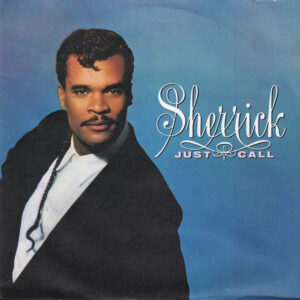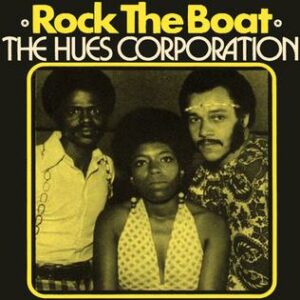There are certain words and catchphrases that get a lot of play if you are a word peddler in the music game. Words like "influences" and phrases like "traditional approach" and "it’s unlike the soulless satanism of terrestrial radio…" (okay, I made that last one up…kinda) are rote for music criticism. The debut album for jazz and soul man, Sir Wick, An Interpretation of Universal Language falls into a fairly oft-used category of music journal-ease: "grown-folks music."
Now usually "grown folks" music means that an artist has a live band or at least a live rhythm section recorded on the tracks; Sir Wick does. It means there will be horn lines displaying some bluesy moments, some funky hiccups, and more than a few punctuating blares: all are here and showing off to boot. "Grown folks music," despite the implicit but rarely executed sexual connotations, means that the music won’t embarrass you if played in front of your kids, mama or pastor. Check, check, double check. As someone who is unusually bored by most smooth jazz material, particularly those with secret soul yearnings, what "grown folks music" usually means is that somebody is going to be sporting some boring a*% vocals that blend into the background of polite fusion melodies. Generally it’s a nice accompaniment to folding clothes while making mental checklists, but not exactly moving you to samba. Can I get an "amen"? Here, Sir Wick’s An Interpretation of Universal Language defies the label. His grown folks can sang!
Lead vocalists: Sedalia Marie, Kisma Jordan, Sarah D’Angelo and Damian Reed and supporting sangers Eugene Rogers and Steven Snead really make this album, well, sing! Did I mention Sedalia Marie? The lady starts off unassuming on the opening track "Seal My Heart" and never really loses the creamy casual approach; but midway in the cut she’s riding Wick’s mid-tempo groove with just enough scats and riffs to let you know she’s nobody’s cupcake. Marie repeats this feat with laid-back assurity on "What Am I To Say" and, my personal favorite, "Moonlight Serenade," a bossa nova concoction that would make Sergio Mendes proud. Kisma Jordan is sweet of tone and a case study in understated delivery, but on the cool strut of "Uncomplicated," she comes off just lovely. On "Thank You Lord," Sarah D’Angelo’s turn at bat nicely supports the kind of two-step, rhythmic jazz that made Incognito a worldwide institution. On an all too short "Without You," Damian as a soloist is rather underutilized in favor of Marcus Belgrave Sr.’s fine trumpet, but Damian’s vamps and raspy harmonies made me long for the real solo that might have been. "Grown folks" music radio, antiseptically known as adult contemporary, should have no problem adding Sarah and Sedalia’s funky, disco-light duet, "You Are My Everything," to their ailing playlists. Steven, Eugene and the rotating leads on background harmony add enough butterfly flutters to keep every soloist in comfortably supported flight.
I have no idea where Sir Wick found so many classy singers, but he frames them with enough sprightly musical embellishments to keep the listener’s attention. Praises for this heavy lifting go to Wick’s instrumentalists, who aren’t anything to sneeze at either. I never knew "This Is The Day," a gospel standard I sang as a kid, could swing. Under Wick’s direction, it’s Louie and Ella all over again, only this time Kris Johnson and Marc Croft are the trumpeters showing out. Sandy Love on guitar and the triple estrogen threat of Tami Lee Hughes, Leslie DeShazor and Tanya Bennett on strings make "Thank You Lord" heavenly worship. Charles Wilson III shows off his light and dexterous key work on "What Am I To Say." Sir Wick also displays some very nimble ivory skills throughout, but he really sweeps in that New Orleans flavor on "This Is The Day." My failure to mention other fine musician moments is more a reflection of space restrictions than a lack of talent; there is fine musicianship to spare in Sir Wick’s world.
Now everything isn’t always everything on An Interpretation… "I Can’t Wait" slides a bit into that boring "grown folk’ sound I earlier disparaged, with one too many derivative flourishes of routine jazz funk. Personally, I wanted at least one of the three versions (one is of bonus beats) of "You Are My Everything" to kick into a more bass heavy fourth gear that materialized. While all the versions of "…Everything" thematically fit into the suede and satin sophistication of the album, a remix of the cut had the potential to be a house club jam, but Wick plays it way to safe for that move. Lastly, I strongly recommend that on one of the many future recordings that clearly await Sir Wick, that the producer/songwriter/multi-instrumentalist has at least one complete song where one of his signature instruments is center stage throughout (Wick plays keys mostly, but he is also featured on trombone and percussion). He is, after all, the artist on the cover.
Those subjective quibbles aside, An Interpretation of a Universal Language proves its point: good music, skillfully interpreted is universally needed and understood, particularly when this well done. I have a feeling that this adrenaline boosted take on "grown folks music" will know another universal language called "success." Highly Recommended.
–L. Michael Gipson










